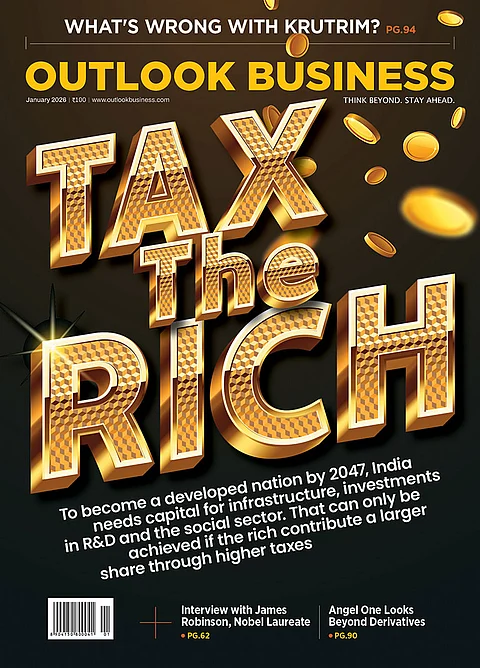Leaders in different fields discussed what it takes to make a resilient India, at Outlook Business #leadingedge2019. The session started with a performance review of the present central government. BJP spokesperson Shaina NC cited various policies including Pradhan Mantri Jan Dhan Yojana, Micro Units Development and Refinance Agency (MUDRA) Bank and Pradhan Mantri Ujjwala Yojana to show that change has come on the ground. She added that economy will not be captured only in numbers, but there were only courageous decisions taken that fought “terror funding, all kinds of mafia, all kinds of cross-border terrorism”. Brand India was also strengthened, she added.
About the recent disappointing results from three state elections, she said there is a need for a closer look at them. “In Madhya Pradesh, we lost about 20 seats for less than hundred votes. In Rajasthan, yes, every five years you have a change of guard. But that does not mean that we did badly, in fact we did fairly well. In Chattishgarh, I believe that people wanted a change and rightfully so.”
Milind Deora, former MP and member of Indian National Congress, agreed that in the last few years of UPA-I and UPA-II things did begin to unravel. “There was a lot of economic headwinds coming in. Internationally, oil prices were extremely high, for one. In the last quarter of our 10-year term, we started to make a lot of mistakes and we did fail to communicate a lot of other achievements,” he said. “When BJP came to power in 2014, and I'm again not speaking as a Congressperson but as a lay investor in the market, I had a lot of expectations from the government. I thought that this was the first government, in the 30 years of India's history that has a clear majority. I thought they could do a lot with regard to loss-making PSUs. Maybe I misunderstood the statement, minimum government maximum governance. I thought it could mean you liberalise.” In the 15 years, he said, he has not seen such fall in business sentiment. There is an unmistakable climate of fear in India Inc, according to him.
Rashesh Shah, chairman and CEO of Edelweiss Group, said that “If you ask me, every government for the last 25 years has a lot of achievements to its credit. And, there were a lot of opportunities which they could not capitalise on. If you look at the GDP growth rate, last 25 years of the average growth rate of India’s GDP has been 7%. The CAGR of 20 years is also 7%, the CAGR growth of 10 years is also 7% and the CAGR for five-year is also 7%. So, over the last 25 years, there have been various governments, various coalitions and majority governments and there have been a lot of good things. To link economic outcomes directly to the government is not always a smart thing to do. Also, something as simple as oil price can change the dynamics.”
Economist and former finance minister of Jammu and Kashmir, Haseeb Drabu, said, “Economics is not economics, it is political economy. You cannot disassociate politics from economics. I was very surprised to hear the BJP spokesperson talk about you know, is BJP’s economic policies. Today, it is undifferentiated policy. BJP has moved from swadeshi to liberalisation as much as Congress moved from socialism to globalisation. Post 1991, there has been only one economic policy. It is a good thing in some ways because there is a consensus and a bad thing in others because you are now stuck with that, there is no differential policy coming in.
Arvind Mayaram, advisor to Rajasthan CM, said, “I think we need to be very clear that in a democracy, the policy direction has to be political. In whichever country the policy direction has come from the bureaucracy, democracy has floundered. In a country like India, we moved incrementally in a direction, we seldom see the kind of a revolutionary change that we saw in 1991. In some ways it is good because stable economic policies are good ground for investment, investors look for a long-term stability in policy space. Since 1991, politics has been driven by economy but we are increasingly seeing the reverse happening. It is this trend we need to arrest if we really want to go from 7% to 9% to 10%. Economic policy-making should get into the heart of politics and I think that is when we see the real growth happening in the country.”
Ajay Vir Jakhar, chairman, Bharat Krishak Samaj, said, "I agree with what the side of the panel is saying is that there is no difference in economic policy. The economic policy of this country is inflation targeting and the primary scape goat is the farmer."











